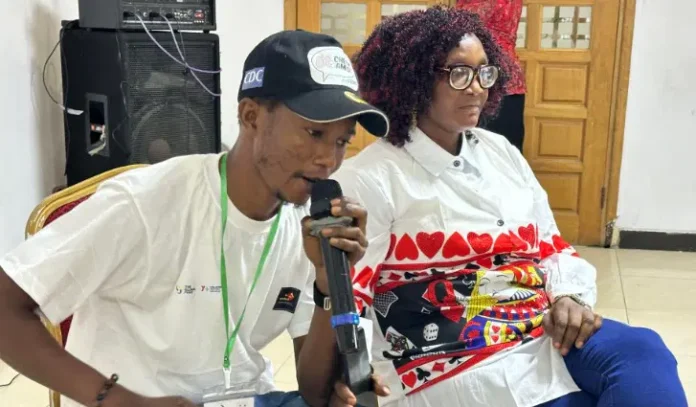By Aaior K. Comfort
Advocacy for Increased Awareness on Treatment and Prevention
Tuberculosis (TB) remains a critical health challenge in Nigeria, exacerbated by low awareness and limited access to treatment. Many individuals live with TB unknowingly, leading to delayed diagnoses and heightened transmission risks. Despite Nigeria ranking highest in Africa for TB burden, awareness sits at a mere 25%.
Good Health Weekly recently spoke with TB survivors, shedding light on their experiences, struggles, and the urgent need for enhanced awareness and healthcare services.
Survivor Stories: Pain and Ignorance
Abdulsalam Abdulquadri, a TB survivor, recounted his harrowing journey. “I was dying. I could not breathe or sleep well,” he shared, describing how a minor chest pain spiraled into a life-threatening condition. Despite seeking help from traditional healers, his health worsened until he began coughing up blood.
He initially dismissed the pain, thinking it was a result of lifestyle choices. “I didn’t even know what was wrong with me,” he said. His ordeal led him to spiritual healers, but their remedies proved ineffective. It wasn’t until he was taken to a private hospital, misdiagnosed initially, that he finally received the proper treatment for TB.
Kadiri Oluseyi: A Survivor’s Journey
Kadiri Oluseyi’s story reflects a similar struggle. Living with HIV and unaware of her TB infection, she self-medicated with cough syrups until her condition deteriorated. Discrimination and stigma compounded her challenges, leading her to seek spiritual remedies, which only delayed her treatment.
“I passed out and found myself in a hospital,” she recalled. After being diagnosed with both TB and HIV, she faced discrimination from healthcare providers. “I lost my teaching job due to stigma,” Kadiri explained. Despite these hurdles, she persevered, ultimately becoming an advocate for TB and HIV awareness.
The Stigma Surrounding TB
Both Abdulsalam and Kadiri’s experiences highlight the significant stigma associated with TB in Nigeria. This stigma often leads to isolation and delayed treatment, further complicating recovery efforts. Abdulsalam’s realization that he had TB came only after persistent symptoms led him to seek proper medical care.
Health experts emphasize the critical need for increased awareness and education about TB symptoms and treatment. Dr. Olusola Sokoya from the Lagos State TB, Leprosy, and Buruli Ulcer Control Programme noted that only 30% of Nigerians recognize the signs of TB, hindering effective intervention.
Expert Recommendations for Combating TB
At a recent media workshop themed “Strengthening Media Partnership and Collaboration for TB Control in Lagos State,” health officials advocated for better education regarding TB symptoms. They emphasized that successful TB control requires at least 80-90% of the population to be informed.
Mrs. Stella Makpu from the National Tuberculosis, Leprosy, and Buruli Ulcer Control Programme highlighted the necessity of private sector involvement in TB initiatives. “TB is a preventable and treatable disease, but it continues to pose a public health threat in Nigeria,” she stated.
Conclusion: A Call for Action
The experiences of TB survivors like Abdulsalam and Kadiri underscore the urgent need for increased awareness, improved healthcare access, and reduced stigma surrounding the disease in Nigeria. Experts agree that a collaborative approach, engaging both the public and private sectors, is essential to effectively combat TB and improve the health of Nigerians.
Recent reports indicate that TB is the 13th leading cause of death globally, with Nigeria ranking as one of the top countries for TB cases. As the battle against TB continues, raising awareness and fostering community support remain crucial for reducing the disease’s burden and saving lives.

